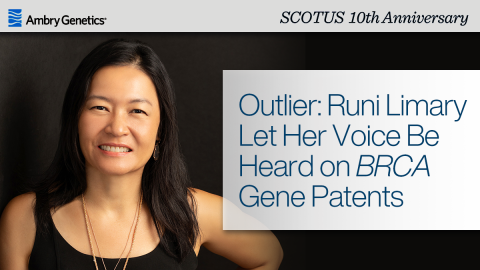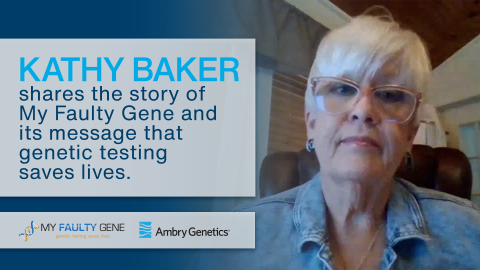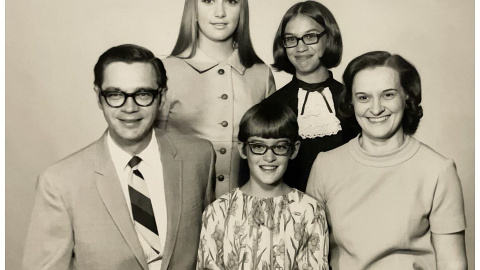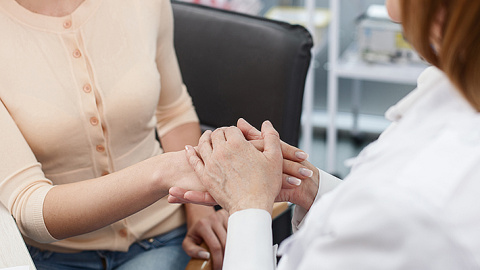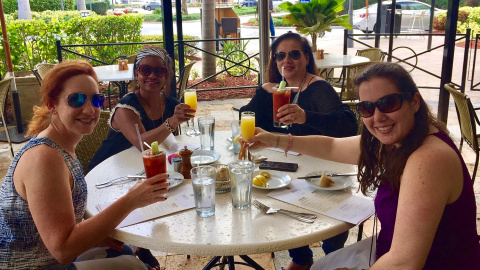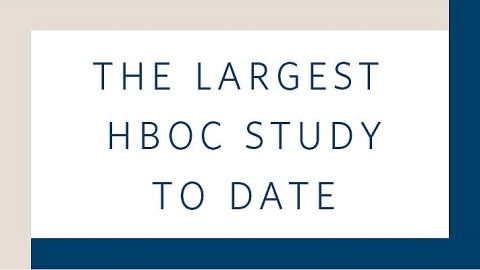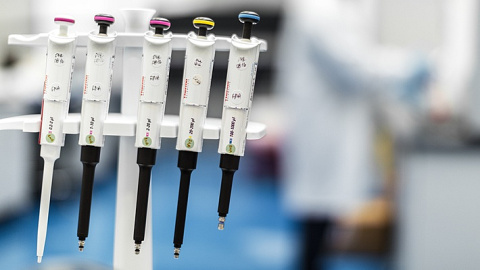- By Jodi Tahsler
- Posted June 13, 2023
Outlier: Runi Limary Let Her Voice Be Heard on BRCA Gene Patents
When it comes to breast cancer, Runi Limary has more personal experience than average. She not only spent time working at a nonprofit for people with breast cancer, but she was diagnosed herself at the young age of twenty-eight. When ACLU lawyers reached out to her about the court case regarding BRCA1 and BRCA2 patents to see…
- By Jodi Tahsler
- Posted November 10, 2022
A Q&A with My Faulty Gene founder Kathy Baker
My Faulty Gene is a nonprofit organization that provides information and assistance to individuals whose family medical history suggests genetic testing might be helpful in identifying an increased risk of disease due to a genetic mutation. They believe that everyone in need of genetic testing should have access to it. We sat down with Kathy…
- By Emily Huebsch
- Posted September 27, 2022
A Different Kind of Patient: Emily Huebsch Empowers Herself and Others Against Breast Cancer
Previvor: A person who has not been diagnosed with cancer, but has survived the predisposition, or higher risk, due to certain genetic mutations.* Breast cancer. Spoken in hushed tones, these scary words are often compounded by the aftermath of breast cancer deaths, creating a stigma around discussing breast cancer in regular conversations. With…
- By Carrie Horton, MS, CGC
- Posted October 3, 2018
Science In 60: Looking Beyond BRCA 1/2 to Identify Women at Risk for Breast Cancer
The adoption of multi-gene panel testing (MGPT) has been a game changer in the hereditary breast cancer arena. As evidence surrounding the growing number of breast cancer predisposition genes has accumulated, ATM, CHEK2, and PALB2 have stood out and become undisputed susceptibility genes conferring a moderate risk for…
- By Laurie Curtis
- Posted September 28, 2017
How my Genetic Counselor Provided Guidance When I Needed it Most
I went in for genetic testing because cancer runs in my family: My maternal grandfather had prostate cancer; his sister had an unidentified cancer; my mother died from ovarian cancer; both her sisters have had breast cancer, one of which had bilateral breast cancer, 18 years apart; and 2 of my 3 female cousins have had breast cancer. One cousin…
- By Karen Malkin Lazarovitz
- Posted September 21, 2017
How I Lost My Lady Parts But Gained So Much More
My story begins more than 9 years ago, when my father called me to say was having genetic testing. His cousin had just been diagnosed with ovarian cancer and had a known BRCA mutation. Many people I’ve spoken with have no idea that they can inherit this from their father, but I did. It is vitally important to meet with a genetic counselor before…
- By Eve Mart
- Posted June 22, 2017
Do-It-Yourself Support Systems for Cancer Survivors
When I was originally diagnosed with breast cancer in 2008, I sought out a multidisciplinary approach to battle my illness, after learning that outcomes tend to be more favorable when compared to following traditional approach. As part of this dynamic approach, I met with various medical and social services professionals. I met with a social…
- By Deepti Babu, MS, CGC
- Posted April 14, 2017
Ambry Genetics and Leading Academic Researchers Collaborate to Improve Knowledge of Genetic Risk Factors for Breast Cancer
New clinical evidence collected from >65,000 women with breast cancer demonstrates 83% of positive test results are found in genes that impact clinical management Multi-gene germline genetic testing allows for efficient analysis, maximizing risk assessment while minimizing the time needed for results. This has been particularly effective…
- By Jackie Connor
- Posted March 2, 2017
RNA Labs—How they Impact the Medical World
Ribonucleic Acid, otherwise known as RNA, is the messenger that carries instructions for controlling the synthesis of proteins from Deoxyribonucleic Acid (DNA). The central dogma of molecular biology states that “DNA makes RNA makes protein." However, for the proteins, which are the final product, to work properly, the RNA needs to be “edited,"…
- By Deepti Babu, MS, CGC
- Posted December 23, 2016
New Research on Male Breast Cancer: Unexpected Results and Insights
Breast cancer in men may be rare in the average population, but is far more common in people with an underlying genetic predisposition. Finding a cancer gene mutation in a man with breast cancer can drastically impact medical management for him and his family members (who may otherwise not be screened for the disease). Current guidelines recommend…
